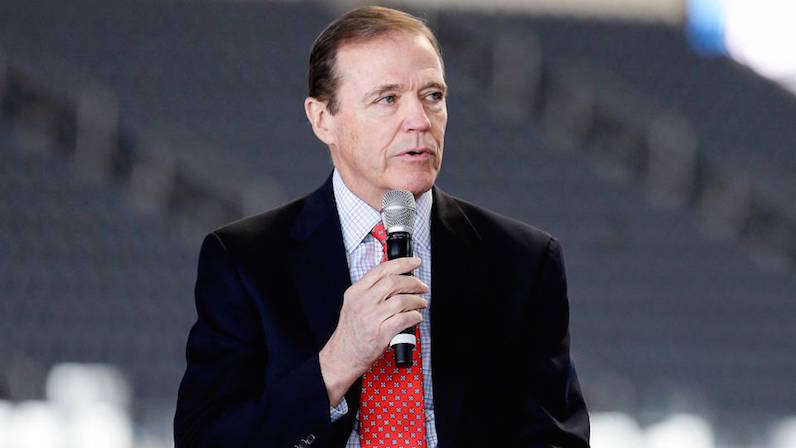A few years ago, a group of Wake Forest alumni began calling for Ron Wellman’s head. A billboard on a major highway through Winston-Salem even went up saying that he should be fired.
The impetus of the groundswell was Wellman’s refusal to fire basketball coach Jeff Bzdelik — along with the fact that he hired Bzdelik in the first place, and public statements he made that seemed delusional to many.
But as fans gathered forces on the Internet, the fading of Wake Forest’s Olympic sports also came into play. The Deacons slipped across the board, and fans used that as ammunition: Wellman was out of touch and ineffective.
They were right: the Deacs slipped in several Olympic sports. The Learfield Cup is a good measure, as it tracks success across all sports by awarding points based on results. The Deacons were strong in the 2000s; the school averaged a 40th-place finish among Division I schools from the 1999-2000 season through 2009-2010. The high-water mark came rank in 2006-2007: No. 23 nationally.
Then, however, the slip started. From the 2010-2011 season through 2014-2015, Wake Forest averaged an 85th-place finish, more than double the previous decade.
Wellman could have stepped down during this period: For example, after his tenure ended on the NCAA Tournament selection committee in 2014 would have made sense. No one would have blamed him. He was in his mid-60s, and he had achieved a tremendous amount in more than 20 years at Wake Forest.
But Wellman decided he needed to dig his programs out of their problems, not walk away from them. This is a man who accomplished so much that he once was considered a favorite for bigger jobs, such as Tennessee and Michigan, and he didn’t want his legacy to be the destruction of that success.
New hires in football and basketball were the first steps, and Dave Clawson and Danny Manning have proven to be good, so far. But Wellman knew he somehow needed to fundraise off the struggles of the non-revenue sports.
The results have been surprising. In another year or so, Wake Forest will have completed recent major renovations of the space for every sport across the board, from fields to training and nutrition facilities. One example is an almost $10 million investment in baseball — led by a $3 million gift from former player David Couch.
Those investments are starting to pay off. Wellman can look out with pride as Wake Forest sports improve across the board. Some spring examples: Baseball is playing the Super Regionals for the first time since 1999; men’s tennis ranked No. 2 in the country; golfer Jennifer Kupcho finished as the NCAA runner up and Robert Heppenstall finished fourth in the 800 meters. In the fall, men’s soccer — a long-time power — was the NCAA runner up, and Ian Harkes was the top player in the nation.
So what does that mean for the big two: football and basketball?
Success in the Olympic sports keeps up talk and momentum around Wake Forest, which is extremely valuable in both recruiting and fundraising.
While Wake Forest is an ACC school, its national profile is still smaller than many, and every mention of the school helps build that profile in the minds of recruits, even in other sports. It also shows donors that the athletic program, in general, is in good hands, and it allows fundraising conversations to start from a positive position instead of a defensive one.
The Deacons improved to 68th in the Learfield Cup last season, and currently rank 58th this year, without all the spring successes factored yet. Wellman can feel confident now: when he does step down, a solid foundation has been built for the next generation of all Wake Forest sports.

















